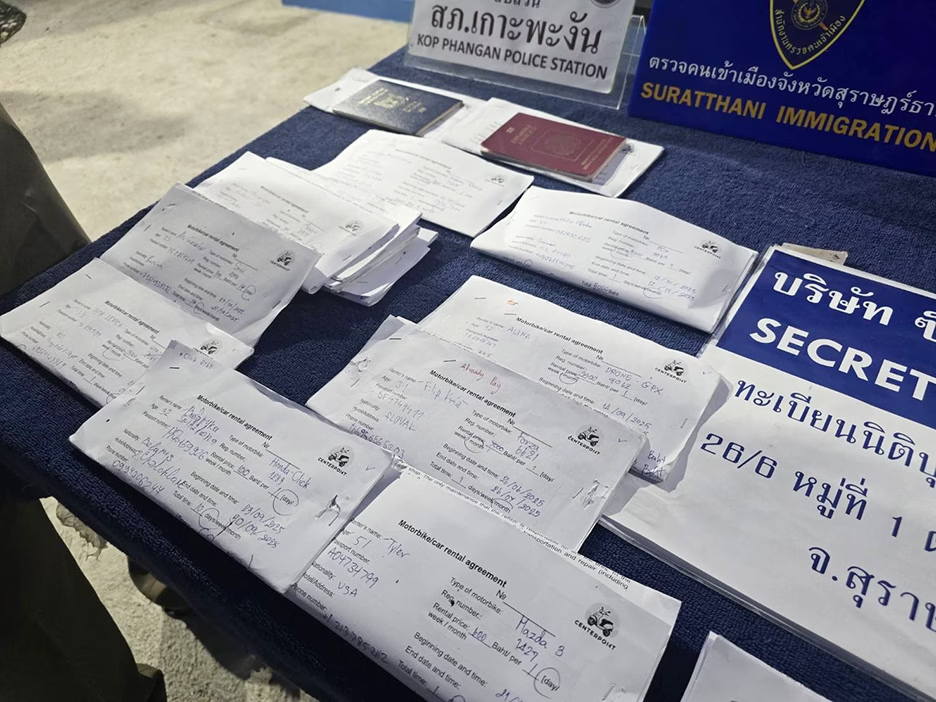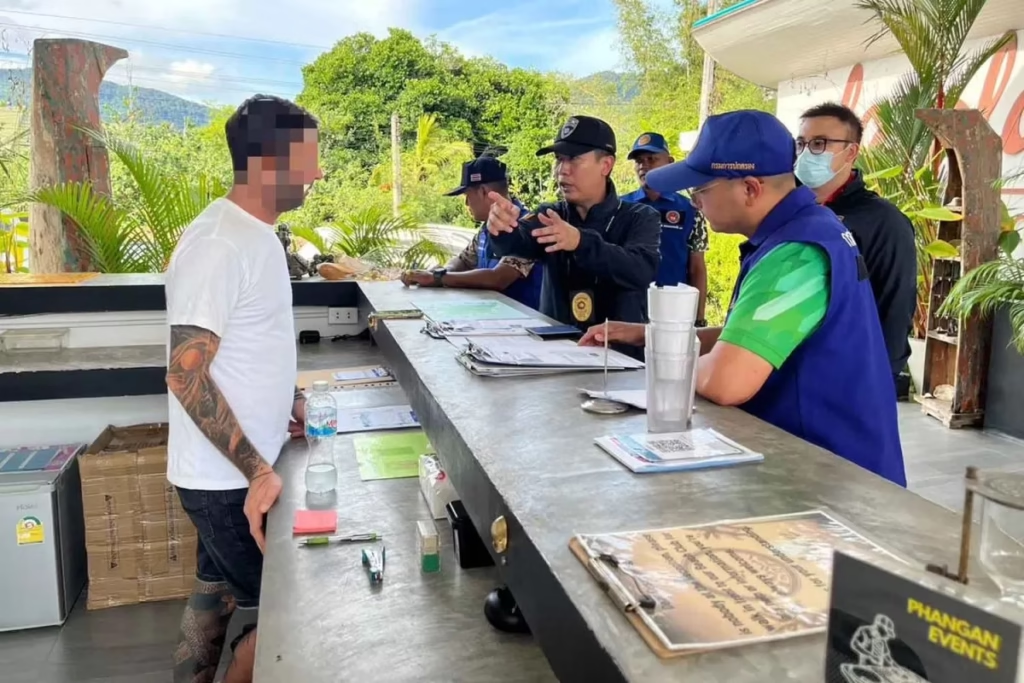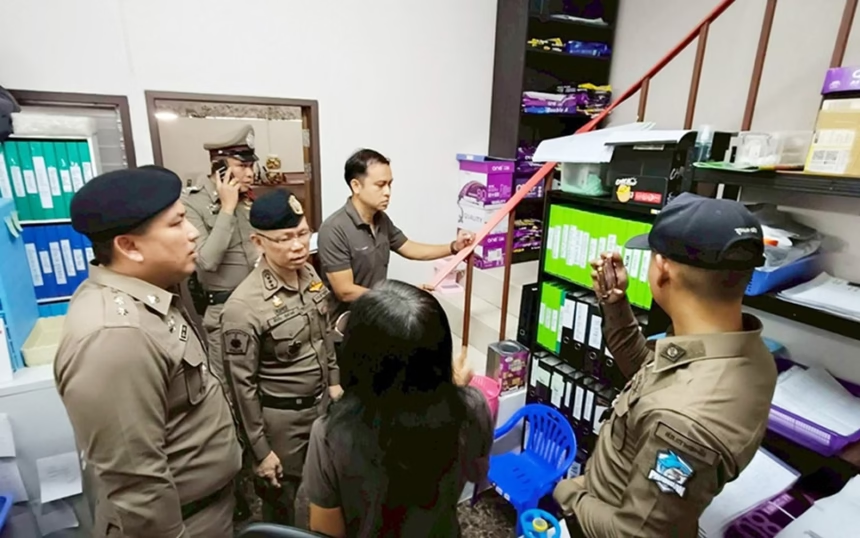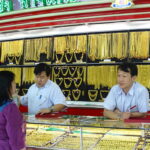SURAT THANI — Koh Phangan’s postcard beaches and free-spirited vibe now share headlines with a sweeping clampdown on illegal business activity. Thai authorities, led by the Department of Business Development (DBD), are targeting foreign-owned companies suspected of using Thai nominee shareholders, a direct breach of the Foreign Business Act (FB A).
The push has intensified across the southern tourist islands in Surat Thani, with a strong focus on operations linked to Russian and Israeli nationals. Sectors under review include real estate, vehicle rentals, hospitality, and related services. Officials say the goal is to protect local jobs, stop money from flowing out of the community, and make sure businesses in key destinations follow Thai law.
On Friday, Tourist police and Department of Business Development (DBD) teams raided a large vehicle rental network tied to a Russian group. The raid targeted a major rental company in Village 1, Koh Phangan district, and led to the seizure of more than 400 motorcycles and 20 cars.
Officers say the firm also ran an unlicensed accommodation service. Investigators identified a Russian investor as the real decision-maker. A Thai co-shareholder admitted she had no real stake, telling officials she worked on site and acted as a proxy, often called a nominee.
Seven suspects were detained, including the Russian manager and the Thai nominee, on charges linked to working outside permitted roles and running unlicensed businesses. The discovery of 87 customer passports raised serious concerns about how the business operated.

Israeli-Backed Companies Raided
At the same time, inspections turned to Israeli-backed companies, mainly in real estate, construction, and accounting. Authorities reviewed property projects and flagged illegal labour and unauthorized building.
Two hotels with Israeli directors were found to be operating without licences. Officers also visited a law office where a Thai woman allegedly helped foreigners set up nominee firms. Records showed 81 companies registered to one address, a clear warning sign for proxy activity.
DBD Director-General Poonpong Naiyanapakorn said teams checked four target locations and found irregularities across several sectors. One accounting firm stood out, with the same person listed as a shareholder in 66 companies, pointing to a system built to support nominee structures.
Thailand’s Foreign Business Act B.E. 2542 (1999) limits foreign participation in key areas, such as some services and property-related work, unless the company holds a Foreign Business License. To be considered a Thai company, at least 51 percent of shares must be held by Thai nationals.
Nominee shareholding is illegal. It happens when a Thai citizen is listed as the majority shareholder only on paper, while the foreign party provides the money, controls decisions, and benefits from the profits. Sections 36 and 37 of the FBA ban this practice.
Penalties can include fines, jail time, and forced closure of the business, for both the foreign party and the Thai facilitator.

Foreigners Abusing the System
The raids are part of a longer campaign. The DBD says the issue is far larger than a few bad actors. Early checks point to more than 7,000 suspected nominee companies across Koh Samui and Koh Phangan. High-risk sectors include condominiums and land deals, tourism, hotels, and restaurants.
Surat Thani Governor Theerut Supawiboonphol has spoken openly about the harm caused. He said foreigners entering on tourist visas are secretly running businesses, which damages the country’s tourism image, pushes out local operators, and drains money from the local economy. His office has ordered action against foreign offenders and any Thai citizens or state officials who help them.
Frustration on the islands is rising. Long-time residents say rapid, unregulated building is harming the environment and squeezing local businesses. Social media groups like “Save Koh Phangan” have amplified these concerns. Some areas are now mocked as a “second Tel Aviv,” a sign of how quickly foreign-focused projects have reshaped parts of the island.
The DBD is shifting from broad sweeps to deeper, case-by-case probes into the highest-risk companies. The Commerce Ministry has also proposed a new high-level committee, likely chaired by a Deputy Prime Minister, to coordinate with the Department of Special Investigation and the Anti-Money Laundering Office.
The message is clear. Thailand welcomes lawful foreign investment and tourism, but using nominees to sidestep the Foreign Business Act will not be tolerated. Authorities say the aim is to uphold the law, protect the economy, and support sustainable growth across Koh Phangan’s tourism sector.














